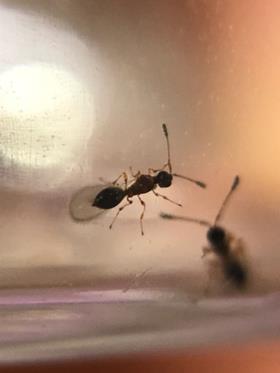
Natural pest control company Bioplanet say their latest 'bio-weapon' is the best long-term offense against the global fruit fly epidemic.
The female wasp Trichopria drosophilaattacks the fruit fly by laying eggs in the their larvae which promptly die. Fruit flies have wreaked havoc across European fruit farms in recent years, with billions of pounds-worth of crops destroyed by their arrival.
Stonefruit, cherries, raspberries and strawberries are most at risk of the fly, who lay their eggs deep inside the fruit, making it harder to spot or treat.
Bioplanet’s strategy is to use nature against nature, meaning it’s suitable for organics, but in a changing planet, they are in a constant state of evolution.
“We release the insects and they fight the pests,” says Bioplanet's Juan Antonio Avalos. “We have to constantly evolve. Climate change is also making the pests more aggressive.'
“The problem is we now have pests coming from Asia and exotic pests,” adds Elisa Alesia Iacovone. “Our newest product is the Trichopria drosophila. It’s a native parasitoid to Europe and is selected to kill the fruit fly.”
Bioplanet’s products, on display at medFEL this week in Perpignan, can be used with other pesticides if needed and the company have a global presence, working with suppliers including Fast LLP in the UK.
Various measures have been taken to combat the fruit fly, with scientists employing smell disruptors and more recently genetic modification to stem their spread.



